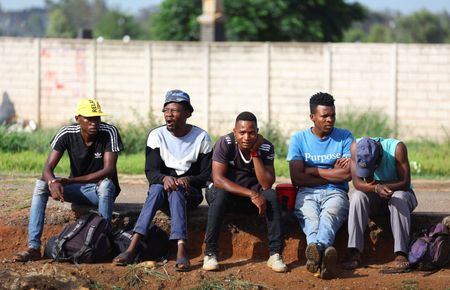By MacDonald Dzirutwe
LAGOS (Reuters) – Nigeria is cracking down on unregistered online money lenders who provide short term loans without security at high interest, the consumer protection agency said, adding it had asked Google to remove some lenders’ apps from its play store.
Known as “loan sharks” for their aggressive recovery methods, the lenders charge interest as high as 45% per annum. Applicants download an app, fill a form and are asked to allow the lender access to their contacts for “risk management purposes.”
Millions of Nigerians who lack bank accounts or security to borrow turn to these lenders for loans starting from 2,000 naira ($4.76). Many have taken to social media to complain about harassment when they default and their contact details being shared with third parties without their approval.
The Federal Competition and Consumer Protection Commission (FCCPC) said in an Aug. 18 report it had conducted search and seize operations against at least five lenders.
One of those targeted was Lagos-based Soko Lending Limited, FCCPC chief executive Babatunde Irukera said.
Soko was “one of the most prolific actors in violating consumer privacy, fair lending terms and ethical loan repayment/recovery practices,” Irukera said. He did not say what had been seized or recovered.
Soko did not respond to a written request for comment.
On its website, Soko says it is a “simple, entirely online lending platform” and can process loan requests in five minutes.
Nigeria has the most fintech companies in Africa, most offering loans. But minimal scrutiny meant many operated without regulatory approval, which the FCCPC seeks to change.
The FCCPC said it had asked Google Playstore to remove four lending apps, which were circumventing investigations.
“For apps not on the Play Store, the commission continues to trace what platforms they are hosted on in order to disable them,” said Irukera.
Payment systems Flutterwave, Opay and Paystack and mobile network operators were ordered to stop providing their platforms and hosting services or connectivity to the lenders, he added.
(Reporting by MacDonald Dzirutwe; Editing by Chijioke Ohuocha and Mark Potter)









